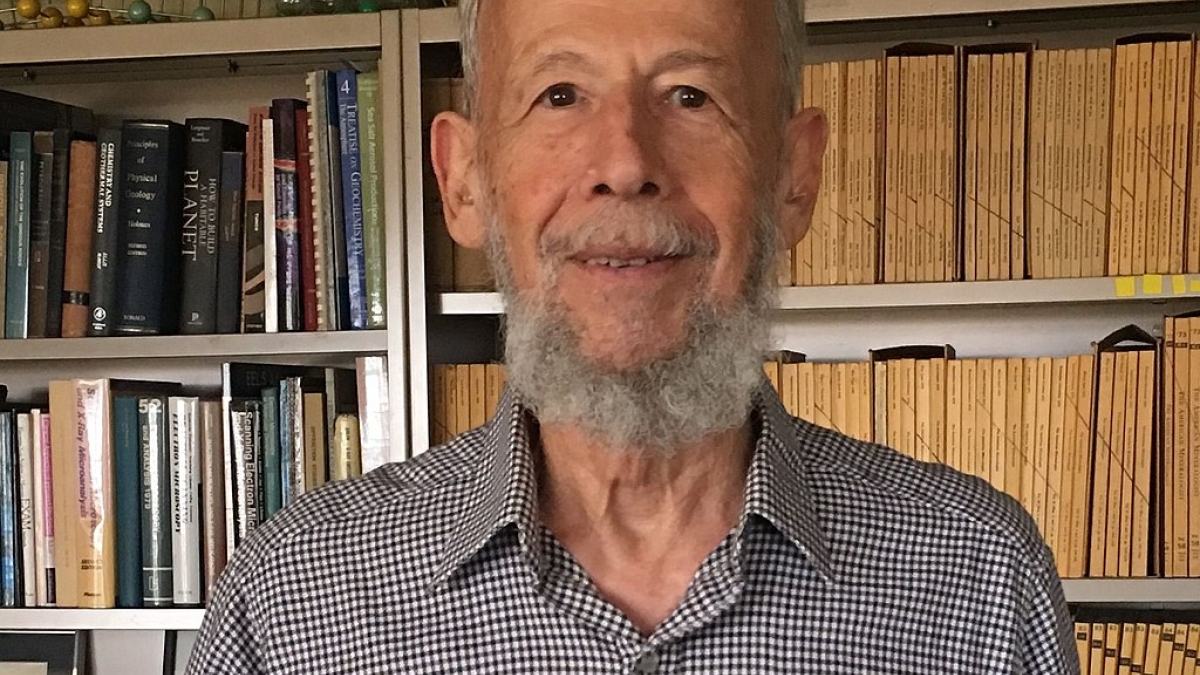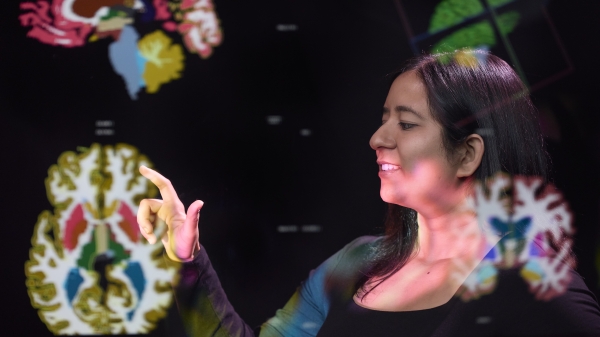World-renowned researcher Peter Buseck retires after 60 years at ASU

Regents Professor Peter Buseck
After 60 years at Arizona State University, world-renowned Regents Professor Peter Buseck has announced his retirement.
For the past six decades, Buseck has held joint appointments in the School of Molecular Sciences and the School of Earth and Space Exploration, making significant contributions in the fields of solid-state geochemistry, mineralogy, cosmochemistry and atmospheric geochemistry. He is a pioneer in the use of transmission electron microscopy in the study of minerals, meteorites and aerosol particles, and has published over 400 papers that have generated over 30,000 citations, yielding a Google Scholar h-index of 100. Google Scholar reports Buseck is the most cited meteoriticist and solid-state geochemist, and the sixth most cited mineralogist.
Buseck has been the recipient of multiple awards throughout his career, most recently the 2019 Roebling Medal, the highest award for outstanding work in mineralogy, and the 2021 David Sinclair Award from the American Association for Aerosol Research. The acclaimed ASU Buseck Center for Meteorite Studies is named in his honor, as well as the mineral Buseckite. The prestigious scientific journal Nature acclaimed Buseck’s research article on the high-resolution imaging of crystal structures as a milestone in the field of crystallography, and he was recognized at the 2023 ASU Founders’ Day, receiving a Faculty Service Achievement Award.
From 1994–95, he served as special assistant to the director of the National Science Foundation and the science staff of the White House Office of Science and Technology Policy. Buseck’s grants from the NSF, NASA and the U.S. Department of Energy, among others, have brought in over $31 million dollars to ASU.
During his career, Buseck has trained many generations of scientists from 25 countries across six continents. He has mentored nearly 40 PhD and master's degree students, as well as nearly 100 postdoctoral researchers and senior visiting scientists. In spite of his long list of achievements, when asked to reflect on the accomplishments of his career, Buseck immediately talks about his students.
“I’ve had some wonderful students and postdocs,” Buseck recalled. “In our group meetings, we had students with very different backgrounds. People came to my research group from around the world, and they came with a variety of perspectives, ideas and questions. We had very interesting discussions that helped everyone, including me. Many of my students went on to fine careers, and that’s a wonderful feeling. It has been a privilege.”
His students are a testament to the value of Buseck’s career:
- Since 1991, Jeff Post, who was awarded the Lifetime Achievement Award by the Jewelers of America, has been the curator of the Smithsonian’s gem and mineral collection at the National Museum of Natural History, which includes the Hope Diamond.
- In 2013, Ellen Thomas received the Association for Women Geoscientists Professional Excellence Award.
- In 2016, Mihály Pósfai won a Széchenyi Prize, which is awarded to “the greatest Hungarian minds alive today.” It is “the most prestigious state award in the sciences” and was given in a ceremony led by the president and the prime minister of Hungary.
- Kouji Adachi was awarded the Young Scientist Award from the Japan Association of Aerosol Science and Technology.
- Sumio Iijima is a member of the U.S. National Academy of Science, as well as those of Japan, China and Norway.
- Tom Sharp is a professor at ASU’s School of Earth and Space Exploration.
- Dante Lauretta and Tom Zega are professors in the University of Arizona Lunar and Planetary Laboratory.
More Science and technology

How ASU is reshaping manufacturing training
The manufacturing sector faces a persistent challenge: a shortage of skilled workers.As industries adopt emerging technologies,…

Podcast explores the future in a rapidly evolving world
What will it mean to be human in the future? Who owns data and who owns us? Can machines think?These are some of the questions…

New NIH-funded program will train ASU students for the future of AI-powered medicine
The medical sector is increasingly exploring the use of artificial intelligence, or AI, to make health care more affordable and…